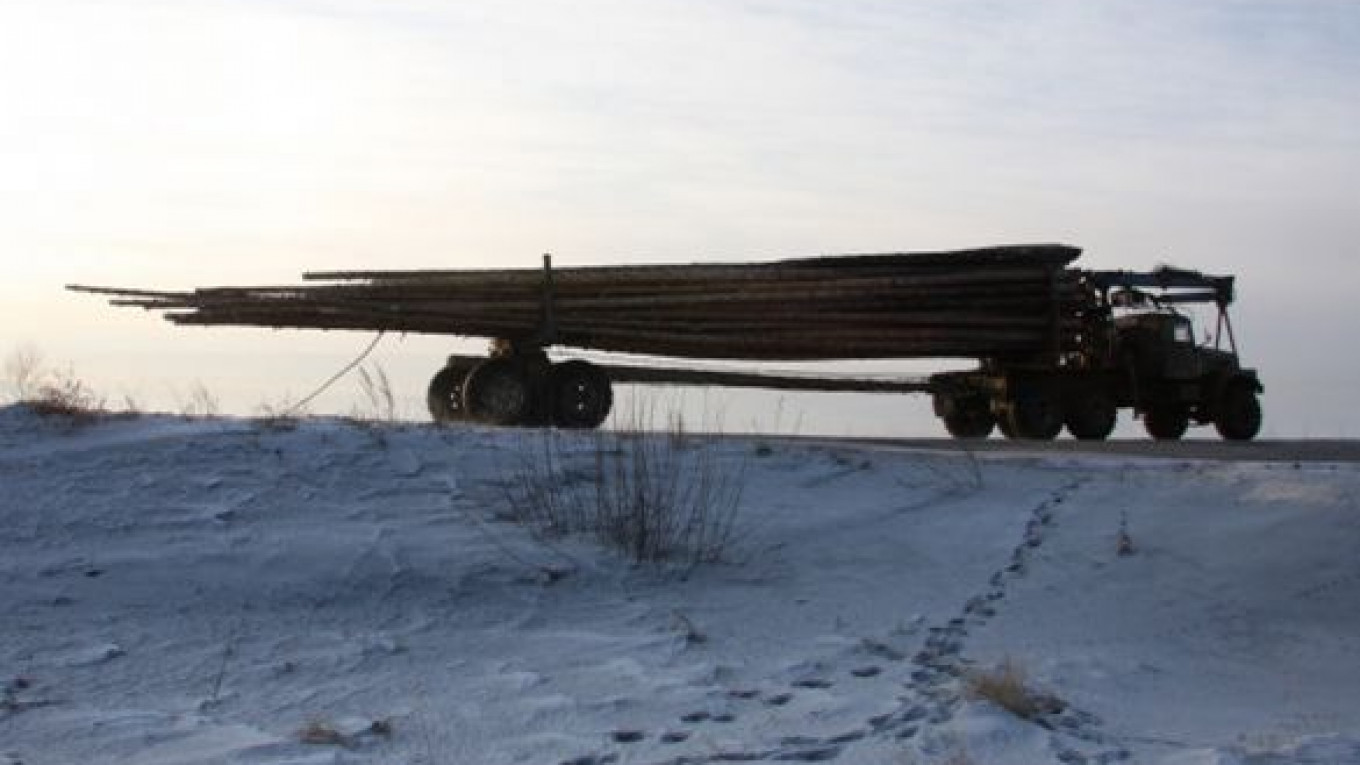Over 50 wildfires have blazed through the Central Federal District since the beginning of this year, and with the current record-setting temperatures, forest officials are preparing for the worst.
"We have a challenging situation now, given the weather conditions," said Alexei Yermolenko, deputy head of the district's forestry department, at a press conference on Tuesday. "Our regional dispatch centers are working around the clock, foresters patrol land plots during all daylight hours and our equipment is on standby."
There have been 57 forest fires in the Central Federal District this year, on federal forestland totaling 30 hectares. All of the fires have been put down before they could reach the tree tops. In addition, over 300,000 fires broke out on other forestland.
The number of fires on federal forestland is analogous to the same period last year, Yermolenko said, although predictions for the coming summer are grim.
A 17-year-old record was broken in Moscow on Tuesday as temperatures climbed up to 28.7 degrees Celsius, sparking fears that 2013 will deliver the same kind of devastating fires that ravaged Russia in the summer of 2010.
"Do you see what kind of spring we have this year?" said Valery Rozhkov, a deputy head of the district's forestry department. "It's impossible to walk outside even in a shirt."
A number of changes have been made in the firefighting services to prevent a repeat of 2010. Notably, the district previously contracted out firefighting brigades but now employs such workers directly. The district also got 1 billion rubles ($31 million) worth of new firefighting technologies in 2011 and an additional 500 million rubles the following year.
One of the key obstacles that remains, however, is the people's attitude to fire safety. The human factor makes up for 99.9 percent of all wildfires, Yermolenko said.
During the May holidays alone, forest crews carried out 6,000 raids and fined about 300 people for ignoring fire safety rules. The basic fines are 4,000 or 5,000 rubles.
People have become more attentive to fire safety after the 2010 fires, Yermolenko said. Recent studies showed that 75 to 80 percent of Russians are already willing to obey the laws, but problems with fire safety and illegal logging still remain.
Illegal logging costs the country over 10 billion rubles each year, Natural Resources and Environment Minister Sergei Donskoi told the State Duma in March. However, the Cabinet rejected a proposal at the end of April to introduce harsher penalties for illegal loggers, including increasing their maximum imprisonment term from six to ten years.
Yermolenko called for introducing punishment for buying illegal logging products, processing them, or being in a forest with a logging device without permission. All of these activities are not outlawed under the current laws.
"It often happens that a potential criminal with logging equipment drives into a forest. He hasn't done anything yet and says, 'Sorry, we came here to pick mushrooms. We'll be picking mushrooms with a chainsaw.' And unfortunately, there is no punishment for that yet," Yermolenko said.
In an effort to remedy the losses caused by wildfires and illegal logging, the district will take part in the country-wide Tree Planting Day on Saturday. The event was first held in 2011 and each year about 40,000 hectares of forest are planted in the district to restore its depleted tree supply.
Contact the author at e.smirnova@imedia.ru
A Message from The Moscow Times:
Dear readers,
We are facing unprecedented challenges. Russia's Prosecutor General's Office has designated The Moscow Times as an "undesirable" organization, criminalizing our work and putting our staff at risk of prosecution. This follows our earlier unjust labeling as a "foreign agent."
These actions are direct attempts to silence independent journalism in Russia. The authorities claim our work "discredits the decisions of the Russian leadership." We see things differently: we strive to provide accurate, unbiased reporting on Russia.
We, the journalists of The Moscow Times, refuse to be silenced. But to continue our work, we need your help.
Your support, no matter how small, makes a world of difference. If you can, please support us monthly starting from just $2. It's quick to set up, and every contribution makes a significant impact.
By supporting The Moscow Times, you're defending open, independent journalism in the face of repression. Thank you for standing with us.
Remind me later.






